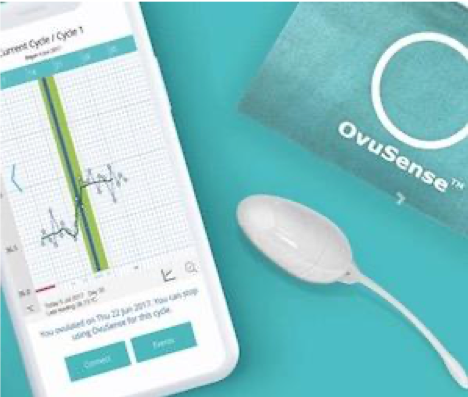Dr. Samina Mitha, MD has kindly written this blog post to help Polycystic Ovarian Syndrome (PCOS) patients to conceive.
PCOS is thought to be the most common endocrine disorder affecting women of reproductive age. When it comes to PCOS, some of the major symptoms include:
- irregular cycles
- weight gain
- symptoms of high testosterone i.e. hair loss, excessive hair growth and acne.
Hormonal imbalances can lead to difficulty with fertility, but with the support of your medical team a healthy pregnancy is achievable. If you are thinking about growing your family, here are five things to consider before trying to conceive.
1. Diet
Nutrition is incredibly important when it comes to PCOS. Studies show that reducing carbohydrate consumption can positively impact metabolic markers such as insulin and glucose2,3. Keep in mind that although you may want to limit carbohydrates to very minimal amounts, you should ensure that you’re getting enough lean protein, healthy fats and lots of vegetables. This can help you feel satisfied after a meal, rather than feeling that you’re depriving yourself.
I often recommend aiming for 60 grams of protein a day, which is about 20 grams per meal. In terms of carbohydrates, complex carbs are ideal as they’re slower to break down into glucose. This in turn blunts a rapid rise in blood sugar. Examples of complex carbs include brown rice, quinoa and starchy vegetables such as sweet potato and squash.
2. Ovulation Signs & Tracking Apps
Using an app to track your cycles can help determine how regular your cycles are. These apps can often help to predict ovulation, which may be accurate for some women. However, this isn’t always true for women with PCOS. Since ovulation can vary from cycle to cycle in PCOS, your period app may not be accurate.
One alternative to using a tracking app is to use ovulation strips (aka LH strips). These help determine when your luteinizing hormone is surging, which is when ovulation is imminent. However, in PCOS, LH can stay high throughout the whole cycle, rendering the strips inaccurate.
Another option to track your cycle is OvuSense, which is a device that tracks core body temperature and can predict ovulation up to 24 hours before you ovulate. OvuSense uses in-cycle data, meaning it works even if you have PCOS or irregular cycles.
3. Lab Testing
With PCOS, lab testing is incredibly important to determine what’s truly going on. For example, I use lab testing to determine the root cause of a patient’s PCOS. Lab testing will help to determine whether testosterone is high, if insulin resistance is present and if progesterone levels are low.
Here is a list of lab tests that may be helpful to view when it comes to PCOS:
- Complete Blood Count (CBC)
- Thyroid health (TSH, Free T3, Free T4, Anti-thyroglobulin, Anti-thyroperoxidase)
- Vitamins/Minerals: Ferritin, Vitamin B12, Vitamin D
- Lipid panel
- Metabolic Markers: Hba1c, Fasting insulin, Fasting glucose
- Hormones: Luteinizing Hormone (LH), Follicle Stimulating Hormone (FSH), estradiol, Free and total testosterone, DHEAs, Androstenedione and progesterone.
4. Physical Activity
It goes without saying that movement, in general, is vital to overall health. When it comes to fertility, exercise can be very beneficial to help with reducing inflammation and supporting your hormones.

Exercise is important for most health conditions, but with PCOS, exercise is crucial as it’s a metabolic condition. Physical activity helps to manage insulin resistance and can also help to reduce inflammation. As you can imagine, moving your body can have a huge impact on improving your overall health.
Research suggests that High Intensity Interval Training (HIIT) seems to have the greatest impact on obese women with PCOS. HIIT exercise involves repeated cycles of several minutes of high intensity exercise with short periods of low intensity exercise or rest. In fact, HIIT over a 10 week period resulted in lowered fasting insulin, Homeostatic Model Assessment of Insulin Resistance (HOMA-IR) and DHEAS (a type of testosterone produced primarily in the adrenal glands)5.
5. Supplementation
Choosing a good quality prenatal is also important when preparing to conceive. Keep in mind that it takes three months for an egg to fully mature in the ovary. As a result, it’s a good idea to get started on a prenatal vitamin about 3 months before trying to conceive. A good prenatal should have B vitamins in their activated forms. This is because when they’re in their active forms, the body can utilize the vitamin immediately. For example, look for Vitamin B6 as pyridoxal-5′-phosphate instead of pyridoxine hydrochloride.
Additionally, the other vitamins and minerals should be in their most absorbable forms, such as citrate – for example, calcium citrate, magnesium citrate, zinc citrate, etc. It is also important to choose a prenatal that has enough folic acid, since the recommended dose of folic acid is 1mg.
Another supplement to consider when trying to conceive with PCOS is myo-inositol. This is a supplement that helps with insulin resistance and embryo quality1. Additionally, myo-inositol can reduce testosterone levels and establish better luteinizing hormone/follicle stimulating hormone ratio, which are often elevated in PCOS and induce ovulation. This may help to induce spontaneous pregnancies4.

 Dr. Samina Mitha, MD
Dr. Samina Mitha, MD


